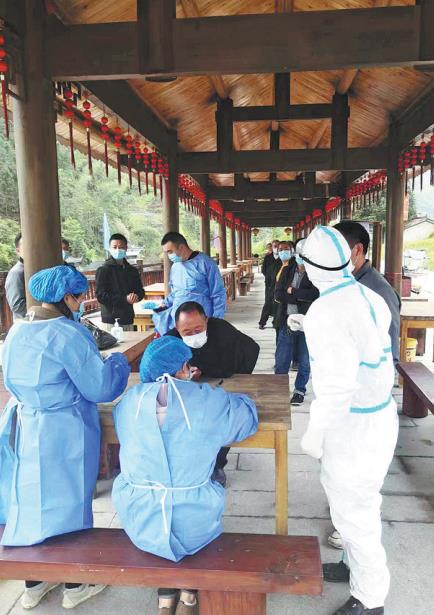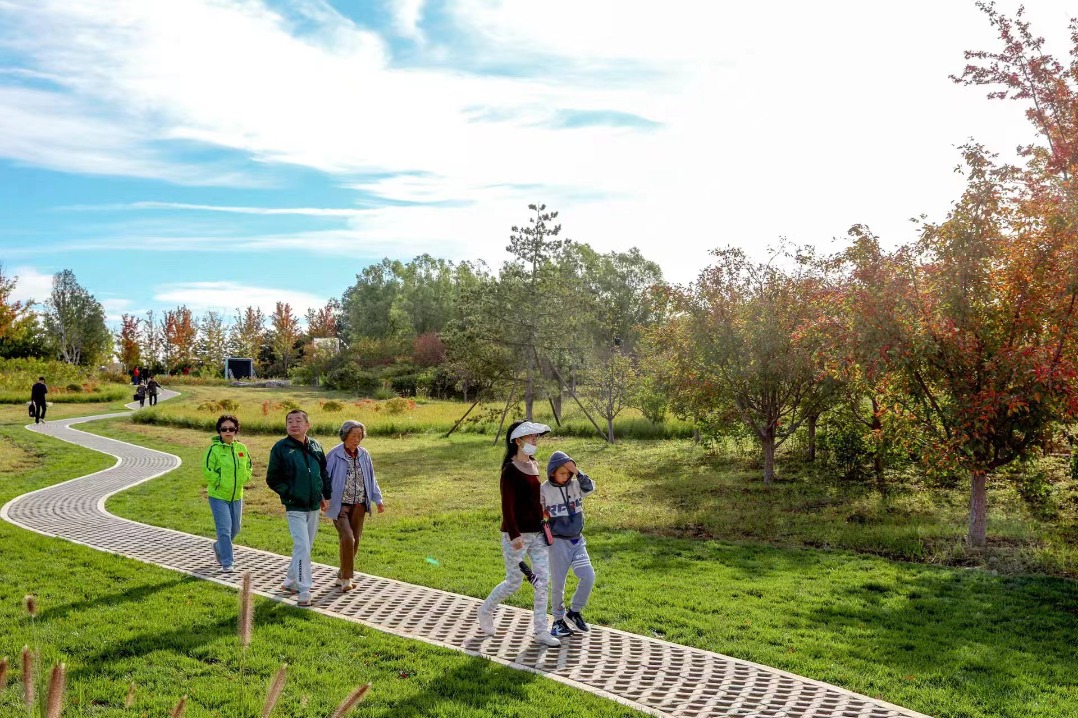Medics battle COVID-19 in the countryside





Diligent health teams work at grassroots level to protect residents
Editor's note: Rural areas, where seniors and children often account for the majority of the population, face new challenges after China adopted an optimized pandemic control policy. Doctors from village clinics and township hospitals tell of their ongoing fight against COVID-19.

In the week to Saturday, a village clinic in Anhui province received about 70 patients a day with fever.
Most of the locals in Chenxiaozhai village, Linquan county, have moved to cities across the country for work, but 2,000 residents remain in the area.
Chen Ping, the village chief, estimated that more than 90 percent of the patients were infected with COVID-19, despite the clinic not having enough rapid antigen test kits.
Chen was a doctor at the clinic until 2015, when he was persuaded by the Lyuzhai township government, which administers Chenxiaozhai, to serve as a full-time village cadre.
Chen fell ill around Dec 14, and an antigen test showed he was infected with COVID-19. The other 13 village cadres and the seven medical workers at the clinic fell ill later.
"They could take a break from work for two or three days, but after that they needed to return to work, as there was so much to be done to keep the village running," Chen said, adding that he never took a single day off work.
As China optimizes and adjusts its epidemic prevention and control measures, Chen said the village cadres' work priorities had also shifted.
Last month, their hardest tasks were organizing mass testing and keeping the villagers to stay home.
"At that time, the villagers were eagerly waiting the arrival of agricultural produce traders, but the traders were not allowed in from outside the village," Chen said.
Green onions, which cost only 0.80 yuan per kilogram last month, now cost 2 yuan per kg.
"The optimized epidemic prevention and control measures have still been welcomed by the villagers despite the number of infections," Chen said.
With urban residents experiencing severe shortages of the anti-fever drug Ibuprofen, Chen said it could be a different story for those in rural areas.
"Urban residents typically go to drugstores for anti-fever drugs, and they often ask for Ibuprofen, as the pharmacists cannot give customers diagnosis and treatment," Chen said.
"In contrast, in rural areas, there are hardly any drugstores. Villagers who are sick have to go to clinics and hospitals for treatment, where doctors have more choices of anti-fever drugs."
At a news conference held by the Anhui provincial health authorities on Friday, experts said infections in rural areas would peak in a few days and a number of measures would be taken to handle a possibly tough situation.
The measures include increasing reserves of medical supplies for the villagers.
On Saturday, Ibuprofen tablets arrived in Chenxiaozhai and were distributed to villagers.
"Each of the 432 villagers who is 60 or older received four pills in the hope they could deal with the fever themselves and ease the doctors' workload," Chen said, adding that these supplies are not available for younger villagers at present.
In Lujiang county, Hefei, the provincial capital, a team of 30 medical workers was formed to man a hotline to answer local residents' calls 24 hours a day.
The local health authority said callers are provided with professional suggestions based on the symptoms they describe.
- Migratory birds flock to Jilin's wetland haven
- Former Chinese bank official sentenced to death with reprieve for taking bribes
- China's 'Flying Police' gyrocopter unit soars over Gobi Desert
- Woman jailed and fined for selling celebrities personal information
- China publishes draft law on private sector promotion to solicit public opinion
- Taiwan's Ma slams Lai's 'two-state' theory
































